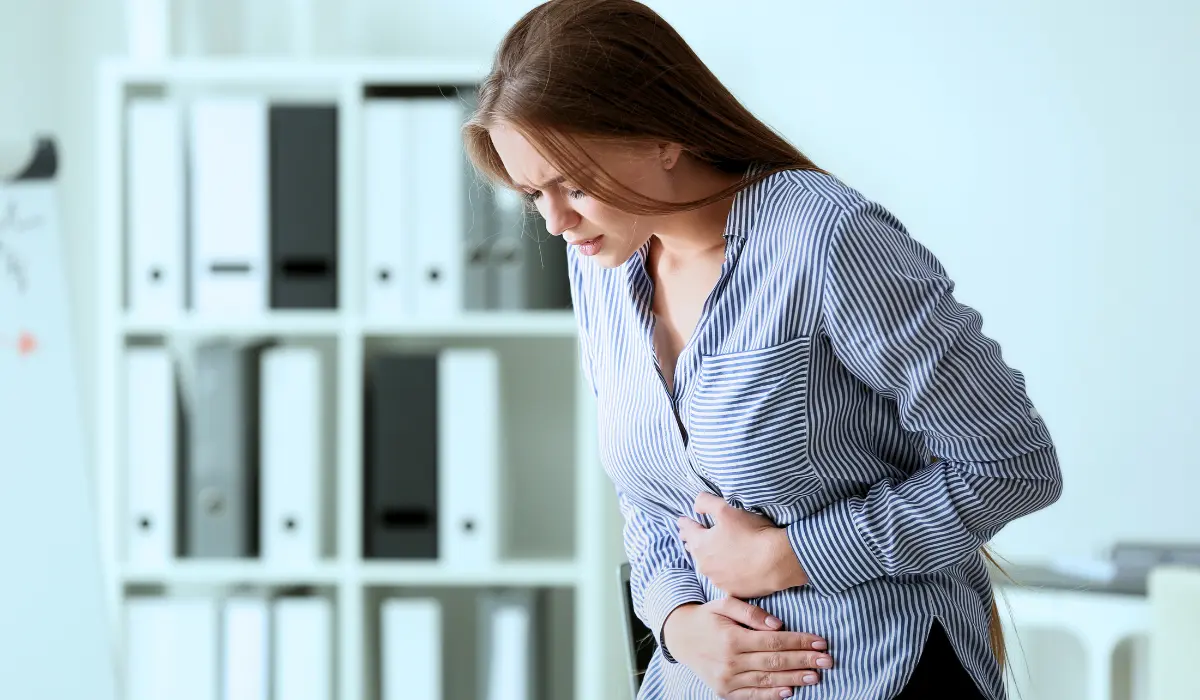Abdominal pain can be a frustrating and often debilitating experience, with numerous potential causes ranging from minor discomforts to serious medical conditions. One factor that many people overlook is dehydration. While it may seem counterintuitive, dehydration can indeed contribute to abdominal pain, and understanding this connection is crucial for maintaining overall health and well-being.
Understanding The Link Between Dehydration And Abdominal Pain
The human body is composed of approximately 60% water, and this vital fluid plays an essential role in numerous physiological processes, including digestion. When the body does not receive adequate hydration, it can disrupt the normal functioning of the digestive system, leading to a range of uncomfortable symptoms, including abdominal pain.

One of the primary mechanisms through which dehydration can cause abdominal pain is constipation. Water is necessary for softening and moving stool through the intestines. When dehydrated, the body absorbs more water from the digestive tract, leading to hard, dry stools that can be difficult to pass. This straining and pressure can result in abdominal cramps, bloating, and discomfort.
Additionally, dehydration can lead to a decrease in the production of digestive enzymes and stomach acid, which are essential for breaking down food and facilitating proper digestion. Without these crucial components, undigested food can accumulate in the intestines, causing abdominal pain, gas, and bloating.
Common Causes And Reasons For Abdominal Pain
There are several common causes and reasons that can contribute to dehydration and subsequently lead to abdominal pain. Some of the most prevalent factors include:
- Insufficient fluid intake: Failing to consume an adequate amount of water and other fluids is a leading cause of dehydration. This can occur due to busy lifestyles, forgetfulness, or a conscious effort to limit fluid intake for various reasons.
- Excessive sweating: Engaging in strenuous physical activity, especially in hot or humid environments, can lead to excessive sweating and subsequent dehydration if fluids are not replenished appropriately.
- Diarrhea and vomiting: Illnesses that cause diarrhea and vomiting can rapidly deplete the body’s fluid levels, leading to dehydration and abdominal pain.
- Certain medications: Some medications, such as diuretics, can increase the body’s fluid loss, contributing to dehydration if fluid intake is not increased accordingly.
- Underlying medical conditions: Certain medical conditions, such as diabetes, kidney disease, or gastrointestinal disorders, can affect the body’s ability to regulate fluid balance, increasing the risk of dehydration.
When To Seek Medical Attention?
While mild dehydration and associated abdominal pain may be alleviated by increasing fluid intake, there are instances when seeking medical attention is necessary. Here are some situations when you should consult a healthcare professional:
1. Severe or persistent abdominal pain
If the abdominal pain is severe, worsening, or persists despite increasing fluid intake, it may be a sign of a more serious underlying condition that requires medical evaluation.
2. Accompanying symptoms
If the abdominal pain is accompanied by other symptoms, such as fever, bloody stools, or significant weight loss, it is important to seek medical attention promptly.
3. Dehydration in high-risk groups
Individuals at higher risk for dehydration, such as young children, older adults, or those with certain medical conditions, should seek medical attention if they experience signs of dehydration or abdominal pain.
4. Inability to keep fluids down
If you are unable to keep fluids down due to persistent vomiting or another condition, it is essential to seek medical attention to prevent further dehydration and potential complications.
Conclusion
In conclusion, dehydration can indeed be a contributing factor to abdominal pain. By understanding the link between these two conditions and being mindful of the common causes of dehydration, individuals can take proactive steps to maintain proper hydration levels and potentially alleviate abdominal discomfort.
However, it is important to note that abdominal pain can also be a symptom of various other medical conditions, some of which may be serious. If the pain persists or is accompanied by other concerning symptoms, it is crucial to seek medical attention promptly.
Staying hydrated by consuming an adequate amount of water and other fluids, especially during periods of increased fluid loss, can help prevent dehydration and its associated abdominal pain. Additionally, addressing any underlying medical conditions that may contribute to fluid imbalances is essential for maintaining overall health and well-being.
By being proactive about hydration and seeking medical guidance when necessary, individuals can effectively manage abdominal pain and promote optimal digestive health.
Also Read: Can Dehydration Cause Back Pain? An In-Depth Look
Frequently Asked Questions
Stomach pain from dehydration can feel like cramping, bloating, and general abdominal discomfort or pain.
Two common warning signs of dehydration are dark yellow urine and dizziness or lightheadedness.
Dehydration pain is typically located in the abdominal area, particularly in the stomach or intestinal region.
The kidneys are often the first organs to start shutting down when severely dehydrated, as they cannot function properly without adequate fluids.
Yes, oral rehydration solutions (ORS) like sports drinks or specialized rehydration beverages can help replenish fluids and electrolytes lost due to dehydration.
